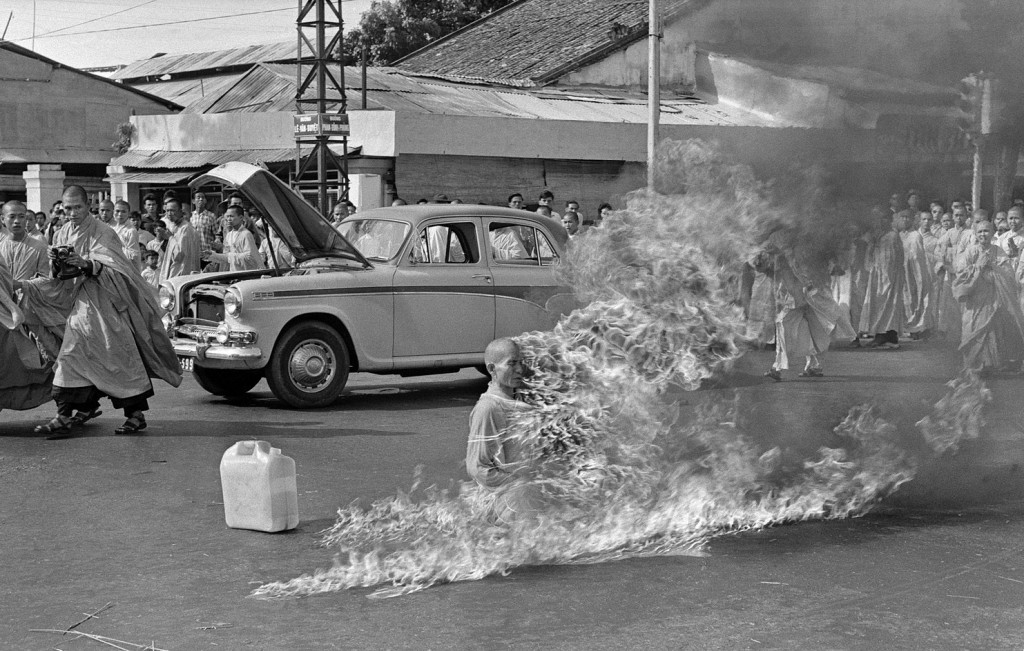 Meghan and I ate dinner at my apartment on that evening – bowtie pasta with Italian bread, beer and coolers on the side. I had moved back into the same one bedroom I’d been living in the previous offseason, accommodations which represented a significant step up, pre-furnished as they came with matching beds and a pull-out sofa. There was an oven in the kitchen, a brand-new shower in the bathroom. There was an entertainment center in the living room and cut-pile carpets in the bedroom. And yet, there were some downsides, to be sure – a minor gas leak, a front-door latch that never caught.
Meghan and I ate dinner at my apartment on that evening – bowtie pasta with Italian bread, beer and coolers on the side. I had moved back into the same one bedroom I’d been living in the previous offseason, accommodations which represented a significant step up, pre-furnished as they came with matching beds and a pull-out sofa. There was an oven in the kitchen, a brand-new shower in the bathroom. There was an entertainment center in the living room and cut-pile carpets in the bedroom. And yet, there were some downsides, to be sure – a minor gas leak, a front-door latch that never caught.
Regardless, at $240 a month, 212 East Magnolia felt like home.
My mother had given me a 4-ft plastic Christmas tree which I had assembled in the living room, twinkling chasers racing garland round the whole. My ground-floor apartment ran warm, and the atmosphere was such that weekend nights meant Meghan and I nestling close beneath a blanket, vegging out along the couch.
That evening Meghan and I were off to West Cape May, where we were scheduled to watch Meghan’s younger sister beat a drum in the holiday parade. We headed out just after dinner, Frank Sinatra crooning “The Christmas Waltz” as we zigzagged west toward the bay. At one point it occurred to me that given the occasional beach house was brightly lit up for the holidays, an aerial view of Five Mile Island might unfurl much like a mirror, collapsing inward on itself until black ocean met night sky.
“My God,” I said to Meghan, as we merged onto Park Boulevard, “it is absolutely beautiful out here tonight.”
“Mmmmmmm,” Meghan responded. She was blowing fits of smoke out through a crack in the window.
“So listen,” I said, “I’ve been giving this some thought, and I’ve decided I might like to stay here throughout the winter.”
“Throughout the … like the entire winter?” Meghan said.
“That’s right … like straight on through until next season.”
“What about school?” Meghan persisted.
“What about school?” I countered. “My grades are shit, my interest level is nil, and re-enrolling might mean me moving back into my parents’ house.”
“But that’s your …”
“Not to mention re-enrollment would necessitate me cutting off my benefits. And for what? A 2-hr commute both ways? One that begins and ends with a 1-mile walk during the dead of winter?”
“I understand there are certain sacrifices that need to be considered,” Meghan said. “But things are different now. You’ve got your license. Maybe you can get a part-time job once you get up there, put a down payment on a nice little used car or something.”
“Oh, right,” I said, shuffling right to face the window. “So now you’ve got me moving back into my parents’ house, taking on a full-time course load, working 20-25 hours a week, and giving up my unemployment. All in the hopes that at some point, somehow, I might be able to afford some kind of jalopy.”
“Jesus,” Meghan whispered. She flicked her cigarette out the window.
“Let’s not forget about the additional cost of insurance, and gas, and expenses, and wear and tear,” I continued. “And then, there’s the fact that that semester – a semester I have absolutely no interest in, mind you – lasts a little over four months. Four months! You expect me to knock all this other shit out over the course of four months?”
“Well, no, not necessarily,” Meghan said, “but…”
“And when exactly would I find the time to come down here and visit you?” I wondered. “I mean, those same four months last winter nearly killed us – three buses and two train rides every weekend, sleeping in your mother’s guest bedroom? Is it really such a sin I’d rather spend those same four months with you?”
“Of course not,” Meghan said. “But it’s also important that your rationale for doing so is wholly focused on what makes good sense for you, not me … or even us, for that matter.”
“What’s that supposed to mean?” I glowered.
“It just means that if things between you and I are meant work out, they will,” Meghan said. “The more you try to force them by sacrificing things that are actually important, the more you risk a certain level of resentment later on.”
“Funny,” I said. “I was always taught that self-sacrifice and compromise represented the very cornerstones of any relationship.”
“Self-sacrifice and compromise represent the very cornerstones of any marriage,” Meghan said. “For now, the two of us need to focus on achieving all the little things that’ll help us get to where we might want to be someday. I mean, let’s say – just for the sake of argument – you decided that going back to school wasn’t really the ideal thing for you. What exactly do you think you might want to do with yourself instead?”
We were entering the Middle Thorofare, a bleak and barren stretch of Ocean Drive where the road began to open.
“Did you just ask me what I thought that I was doing with my life?”
“I just asked you how you plan on making a decent living,” Meghan said. “Believe it or not, Bob, certain people do tend to inquire about such things from time to time.”
“Since when do I need to convince anyone of what it is I think I’m doing with my life?” I said.
“It provides people with a sense of security,” Meghan responded. “It, like, lets people know there isn’t any risk of you falling victim to revolving debt.”
“Oh, OK,” I nodded. “I see. So now we’re working under the assumption that the best way to avoid revolving debt is by taking on several thousand dollars’ worth of student loans?”
“It’s a means to an …”
“What people?” I interjected.
“Huh?” Meghan said.
“A second ago you said it provides people with an ongoing sense of security,” I said. “Who exactly are we talking about?”
“I don’t know, Bob,” Meghan exploded. “People. Goddamn fucking peop …”
“It sounds to me like you do know.”
“Oh it does?” Meghan responded. She was smirking at the windshield, performing cartwheels with her brow.
“Yes, it does.”
“OK,” Meghan conceded. “How about my father, for starters?”
“Your father?”
“That’s right,” Meghan said. “Every now and again my father just so happens to ask.”
“This is your dad we’re talking about?” I said. “The same guy who spent his early 20s sleeping out on public benches while he hitchhiked his way across Europe?”
“My father served in a fucking war before he took his first trip to Europe,” Meghan bristled. “You don’t think he has a right to ensure his daughter avoids making a lot of the same mistakes that he made?”
“Oh, that’s rich,” I nodded. “So now I’m a mistake.”
“That’s not what I said.”
“So what exactly is it that your father needs to know?”
“I suppose he just wants to know whether you have some real sense of ambition,” Meghan said. “Y’know, that you’re not one of these guys who spends his entire life just marking time. He really likes you, Bob. He sees certain aspects of himself in you. But he also takes a vested interest in ensuring that I’m cared for.”
“Has there ever been a moment when I haven’t taken care of you?”
“There’s never been a moment when I’ve needed you to! I mean, Jesus, Bob, you’re barely in any position to take accountability for yourself. No offense, but you’re 21, you’ve got no job, no car, no health insurance, no assets, and no discernible interest in pursuing any of the above. And while that may be well and good for now, have you ever considered that I might want something more out of my life? That I might want something more than simply scraping to get by, living month-to-month inside of some ghetto apartment?”
We drove through a toll plaza. Meghan turned the radio up. I turned the radio down. We made a right onto Route 109.
“I do have some money set aside,” I said.
“Uh-huh,” Meghan responded.
“Not, like, a lot of money, but enough that I’m not really living paycheck to paycheck anymore.”
“That’s good,” Meghan said.
“I figure if I keep putting a little money away every month, then I’ll have enough saved when it comes time to take our trip.”
Silence.
“What?” I wondered.
“I didn’t say anything.”
We swung wide around a jughandle, veering left onto Old Seashore Road. We were overshooting Cape May Proper at this point, avoiding an ongoing string of traffic. But we were also missing out on Cape May’s ambiance, on farmer lots and B&Bs, on boughs of holly strung from poles, on velvet sashes and red bows, on tree-fresh pine and tiny hamlets, storefront windows damp with fog.
“Have you given any thought to how much money you might want to bring?” I asked.
“Not really, no,” Meghan said.
“I’m just trying to get a gauge, y’know … just trying to make sure the two of us are on the same page as far as that’s concerned.”
“Right,” Meghan said. Her eyes were steady-fixed upon the road.
“So how much do you think?” I said.
“How much what?” Meghan said.
“How much money do you think we’ll need?”
“I really don’t want to get into this,” Meghan pouted.
“Get into what?” I said.
“This,” Meghan said.
“I thought this trip was something the two of us were looking forward to,” I said.
“It is. It’s just …”
“It’s just what?” I said.
“I just don’t know if it’s really all that feasible,” Meghan said. “That’s all.”
“Whoa,” I said. “What it are you referring to?”
“The trip,” Meghan said. “I’ve just been talking it over with my dad the past few weeks, and he kind of thinks it might be best for you and I to put the thing on hold.”
“Put the thing on hold?” I said. “Put the thing on hold? Put the thing on hold until when?”
“I don’t know,” Meghan said. “Until a point when it actually makes good sense for us to go.”
“I can’t believe what I’m hearing. Weren’t you the one who originally had to talk me into this? Weren’t you the one who said – and I quote – ‘Believe me when I tell you we might never have this chance again’?”
“I suppose I just got caught up in the moment,” Meghan said.
“Are you telling me this thing is officially off?”
“Well, no, not completely,” Meghan said. “I mean, we can still take a road trip down to Florida if you like.”
“Florida?” I said.
“Absolutely,” Meghan said. “You know you’re always talking about how you’ve never been to Universal.”
“I’ve never been to Okinawa. But that doesn’t mean that we should ditch our plans and set a course for South Japan.”
“This wasn’t by design,” Meghan said.
“Oh, no, of course not,” I shot back. “I mean, when it comes to me, everybody needs to know what the fuck it is I’m up to 40 goddamn years in advance. But when it comes to you, you can simply shift gears on the fly.”
“That’s not the way it happe …”
“Y’know, it must be nice,” I said, “being able to sit around the table with your father, deciding what makes good sense for you and I.”
The blocks were passing quickly now, thinning out just short of Cape May Point. Meghan found a desolate street, and eased the gearshift into park.
“Look, I just need you to understand,” Meghan explained, “things are a little intense for me right now. I think it’s finally sinking in just how expensive living on my own is going to be.”
“You’re going to college on a scholarship,” I said. An empty challenge; stillborn words.
“So what?” Meghan said. “There’s still room and board and food and books, not to mention day-to-day. I don’t mean to sound rude, I swear to god I don’t, but you live at home when you’re attending classes. For all the shit you give your parents, you’re basically bilking off of them for four months out of the year.”
“Not this year,” I assured her.
I unbuckled my seat belt. I let it slip through my fingers.
Meghan leaned forward, then settled back. She fixed her hands at 10 and 2.
“It wasn’t always gonna be this way,” she whispered. “I wasn’t always gonna be that little girl who you met while you were working on the boardwalk.”
Silence. The click and ping of cooling plugs.
“It’s not so bad,” I murmured, “the two of us maintaining some small aspect of who we were.”
Meghan emerged from the car. I followed her along East Perry Street. There were spectators eveywhere. Meghan spotted her father and one of her sisters, both of whom were waving from across the street.
“I think I’m gonna go grab a soda,” I told Meghan. “You want anything?”
“Just hurry up,” Meghan told me. “It sounds like this whole thing is about to start.”
Day 715
(Moving On is a regular feature on IFB)
©Copyright Bob Hill



